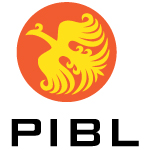|
Trade show exhibitors face new federal regulations when importing cargo via ocean liner from overseas. On January 26, 2009 the Import Security Filing (ISF) rule, also known as the 10+2 rule, took effect. International exhibitors who fail to follow the new rule may be putting their show in jeopardy. U.S. Customs and Border Protection (CBP) can refuse to allow the cargo to be loaded at the point of origin, thereby delaying the shipment. Exhibitors can take steps to ensure this does not happen to them.
Under the ISF rule, importers are required to submit 10 items of data about their cargo at least 24 hours before it is loaded aboard a vessel at a foreign port. Two additional data items are required by the carrier as well, resulting in what is known as the 10+2 rule. Because the new rule is complicated, CBP has established a 12 month flexible enforcement period. Failure to follow the new rule or demonstrate a good faith effort to comply could result in fines of up to $5,000 per violation and delays in shipment.
These 10 data elements are:
- Manufacturer (or supplier) name and address
- Seller name and address
- Buyer name and address
- Ship to name and address
- Container stuffing location
- Consolidator name and address
- Importer of record number
- Consignee number
- Country of origin of goods
- Harmonized Tariff Schedule of the United States (HTSUS) number
Any party may provide CBP with the newly required data however, not everyone is prepared to gather and submit the information to CBP. U.S. Customs’ licensed brokers are in the ideal position to assist exhibitors importing sea freight shipments for trade shows . “Customs brokers have access to the necessary data and are able to make a combined Customs entry/security filing, which creates efficiencies,” explains Phil Hobson, President of Phoenix International Business Logistics, Inc. (PIBL). “Brokers with trade show experience, such as PIBL, can be especially helpful in complying with all Customs regulations while continuing to meet the specific needs and deadlines of exhibitors and show management.” PIBL has more than 15 years experience in the trade show industry and is recognized worldwide for its commitment to exhibitors and show managers.
Another option for exhibitors is to send the cargo by air, which does not require the same 10 + 2 documentation. “Here again is an area where our staff can assist exhibitors in finding the best option for transporting cargo in the most timely and efficient manner,” adds Hobson.
The 10+2 rule is one of many enhanced security measures implemented by the Department of Homeland Security following the 9/11 terrorist attacks on the United States. As an industry leader, PIBL is again working diligently to inform show managers, exhibitors, importers and others about the ISF rule and other regulations that affect trade show shipments. PIBL is a Customs Consultant to the Trade Show Industry and as such will provide follow-up information on the 10 + 2 rule as it is released by CBP.
This legislation alert from PIBL is provided as a courtesy to our professional partners. Detailed information regarding this legislation can be found by visiting http://www.cbp.gov/xp/cgov/trade/cargo_security/carriers/security_filing/
###
Contact:
Phil Hobson, President
Phoenix International Business Logistics, Inc.
1201 Corbin St.
Elizabeth, NJ 07201 U.S.A.
908-355-8900 |

